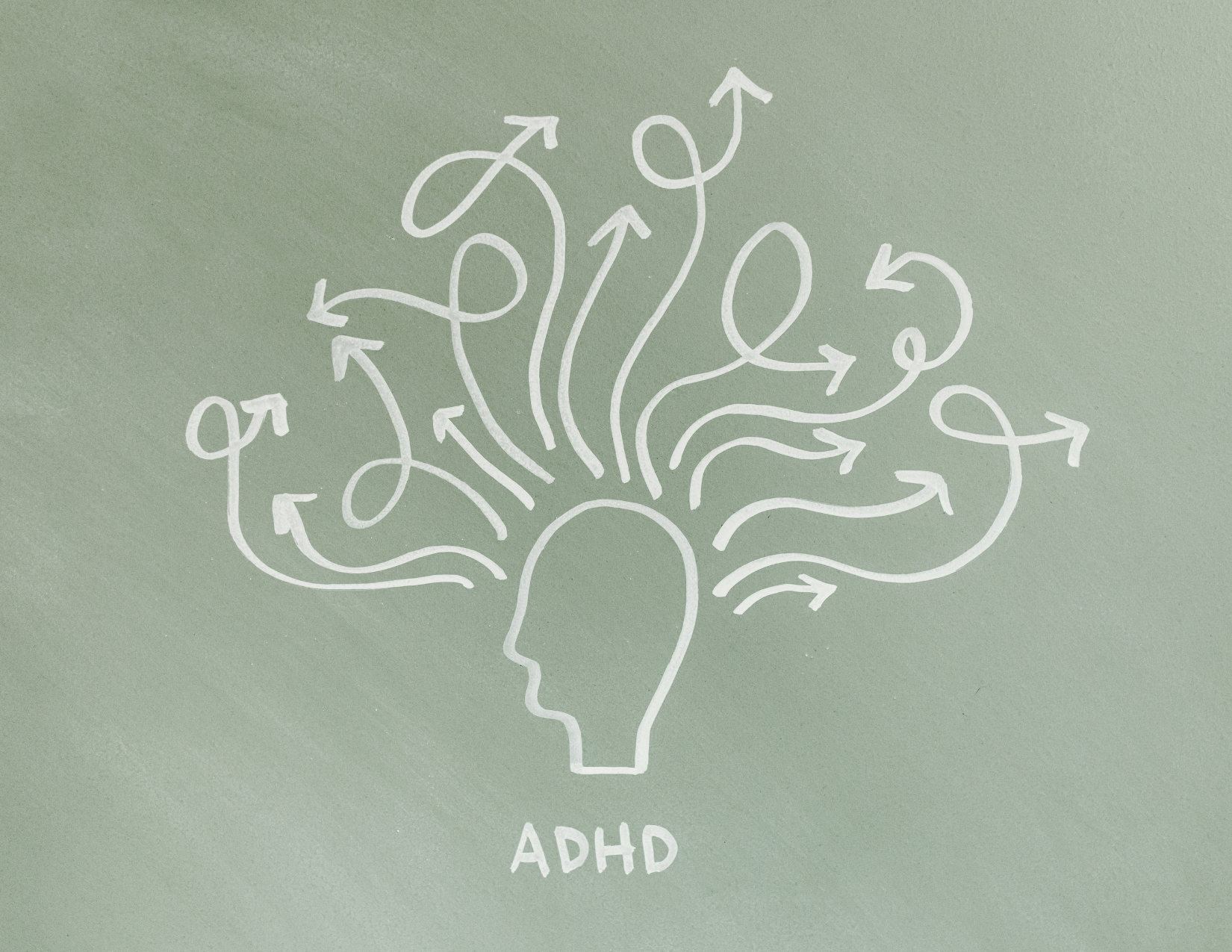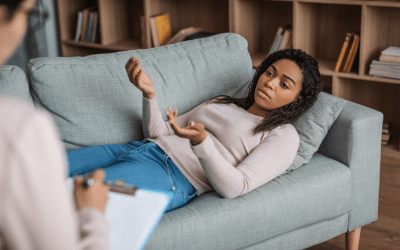
How to Embrace Your ADHD Diagnosis as an Adult Woman
Written by: Deedee Bettis, LPC, NCC
I am in my late twenties and was diagnosed with Attention-Deficit/Hyperactivity Disorder (ADHD) about four years ago. While I was diagnosed “later,” I am one of the lucky few. Since obtaining this life-changing diagnosis, I have heard from people, mainly women, who were diagnosed with ADHD way later in their lives. For me, having this diagnosis put a name to everything I had been experiencing. I wasn’t lazy or unmotivated — I was just trying to fit in a neurotypical world with a neurodivergent brain.
According to Additude Magazine, “Women are highly motivated to hide their ADHD symptoms and compensate for them.” I know for me, any symptom that I had that was remotely considered “out of the norm” was immediately masked. Masking is a term that is seen often amongst the neurodivergent community. Masking is when “a person with ADHD acts in a ‘socially acceptable’ way to fit in and form better connections with those around them” per the Attention Deficit Disorder Association.
Women often are amazing at mimicking or matching the energy of those around them. This ultimately leads to many women who are eventually diagnosed with ADHD not knowing who they truly are. When you’ve spent your whole life masking to fit in with those around you, learning to be yourself can feel extremely vulnerable. For me, I often masked in school and in social situations. I can’t even recall how many times I found myself in a group of other people trying to fit in so I pretended I liked what they liked to avoid being alone. The consequence of that was keeping friends around with whom I truly didn’t have an authentic connection. Or, I would even avoid asking for help in school or at work because I didn’t want to be seen as incompetent.
I decided to explore a diagnosis while in graduate school. I’m a mental health therapist, and during my internship, I worked with many adult clients who were diagnosed with ADHD. One particular day, I was leading a group around habit formation. As my clients talked about their struggles with creating and maintaining habits, it felt like I was hearing my everyday life. I zoned out, processing the potential that maybe I have been undiagnosed with ADHD this whole time. I eventually remembered that I was supposed to be the professional leading the group, came back in focus, and wrapped up. As soon as the group ended, I started looking for assessment options.
I took an assessment through an online ADHD platform. The assessment was long, boring, and tedious —- and felt torturous for someone who struggles with maintaining focus for long periods. After a few days, I had an official diagnosis: attention deficit hyperactivity disorder – combined type. I sat with these results for a while and started connecting the dots.
As a woman, ADHD is often misdiagnosed. Our symptoms look different from most diagnostic criteria. Hyperactivity doesn’t always look like standing out of your seat or jumping up and down. For women, it can look like impulse purchases or subtly bouncing your leg. Inattention might look like daydreaming which often gets misread because many women are dreamers.
So, this is the reason why I procrastinated in school.
So, this is the reason why a minor rejection feels like the literal end of the world.
So, this is the reason why I get really excited to start something and get bored after a few weeks.
It all immediately clicked with seeing this diagnosis. So, there’s nothing wrong with me? I just have ADHD.
As a woman with ADHD, there is a constant worry about being seen as lazy or not doing enough. Coupled with rejection-sensitive dysphoria, or RSD, life can feel like a constant moving target. RSD is “your ability to regulate your emotional responses to feelings of failure and rejection” according to the Cleveland Clinic. My RSD was especially bad when rejection was perceived at work and within relationships. A breakup felt like something that I would never bounce back from. Feedback at work sometimes led to me questioning my whole career path. I wondered why it seemed like everyone else was able to adapt to change so much easier than I could. So much of my life started to make sense as I read more about ADHD.
One of the biggest changes I made after working hard to manage my symptoms was to be mindful of the different ways my symptoms show up. For example, when I’m bored, stressed, or sad, I am very likely to impulse buy. After tons of failed budgets, I finally learned to work with my brain. I created a separate checking account that serves as my “allowance.” This is an account that is strictly for impulse purchases. No bills, household expenses, or debt repayment comes out of this account. It is strictly for dopamine seeking (responsibly)! If there is one simple piece of advice that I could leave with people who live with ADHD, it would be “work WITH your brain, not against it.”
If you have gone through your whole life experiencing symptoms that didn’t have a name, you are not alone. Assumptions about ADHD have led to more and more women being misdiagnosed or dismissed when symptoms are brought up. Self-diagnosis is valid and can be a great stepping stone to a formal diagnosis. Lucky for us, we live in an age riddled with access to technology that allows us to connect with people from all over the world. Many people have been leaning on platforms like TikTok and Instagram to get some insight that can be shared with friends, family, and even their providers.Some of my go-to ADHD accounts are ADHDoers, How to ADHD, and Black Girl Lost Keys. If you resonate with symptoms associated with ADHD, reach out to a trained mental health provider to explore potential assessment and treatment options.
Resources: https://www.additudemag.com/adhd-in-women-misunderstood-symptoms-treatment/
https://add.org/adhd-masking/#:~:text=Masking%20is%20when%20a%20person,who%20don’t%20have%20ADHD.
To discuss how therapy could help you during this season of your life, please contact me or schedule your free 15-minute consultation.
Want to read more? Here are a few of my related blog posts you may be interested in checking out!



0 Comments